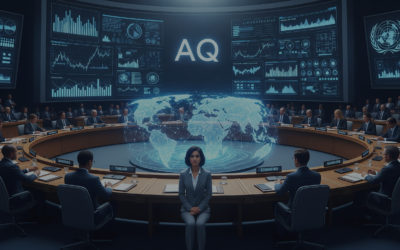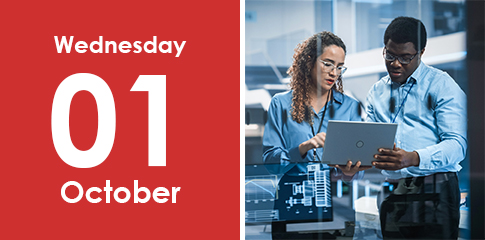In an age marked by digital disruption, shifting power dynamics, and increasing demands for transparency, the practice of diplomacy is under pressure like never before. In this article, Professor Jussi Hanhimäki explores the historical roots of diplomacy and reflects on how the profession must adapt to stay relevant in today’s complex and fast-evolving international landscape.
The Evolution of Diplomatic Challenges
“Even the least thoughtful of diplomats must look nowadays with dismay upon the field of his professional activity.” In this way the anonymous author ‘H’ opened an essay in the April 1937 issue of the journal Foreign Affairs. A sentiment not entirely absent among today’s diplomats as they observe sudden twists and turns in the political landscape that undermine years, if not decades, of effort to negotiate complex international treaties related to climate change or other global issues.
A century ago diplomacy was a seemingly straightforward game revolving around state-to-state relations. Building on that premise, ‘H’ defined the purpose of diplomacy as the ability “to develop and diversify international relationships, to avoid international conflicts, to foster understanding and thereby promote confidence, tolerance and mutual esteem.” In 1937 ‘H’ believed that diplomacy and diplomats had “failed and failed miserably.” A few months later Japan attacked China. A year later, in Munich, Britain and France effectively ceded parts of Czechoslovakia to Nazi Germany in a forlorn hope of preventing a wide European war. When Germany attacked Poland on 1 September 1939, diplomacy had clearly failed to prevent World War II.
Does this mean that diplomats were useless in the 1930s? Hardly. Their collective role at the time was instrumental to the outcomes; German diplomats were, in fact, quite successful in achieving the goals they were expected to achieve. But, as always, even the top diplomats of the 1930s walked a fine line between making and implementing policy. Their power, as that of diplomats across time and space was curtailed by the polities they served.
The above seems straightforward. The classic role of a diplomat is, after all, to provide a service. From antiquity to the Renaissance, diplomats tended to be chosen for their closeness and loyalty to political leaders. Their tasks were sporadic: to negotiate a treaty or issue an offer of friendship or a demand of submission. It could be dangerous: in 481 BCE the ambassadors of the Persian king Xerxes were thrown into a well by the orders of the Spartan king Leonidas. Similar fates befell the envoys of Genghis Khan and many others – the messenger was, indeed, often killed because the recipient did not like the message.
By the 16th century permanent embassies began to emerge in Italy and other parts of Europe. The concept of diplomatic immunity became more widespread and diplomacy gradually emerged as a professional career. In subsequent centuries the role of diplomacy and diplomats was an essential part of the macro processes – imperialism and nation-building – shaping relationships across the globe. Claims for sovereignty required diplomatic recognition and the day-to-day management of affairs between sovereign states depended upon it. Yet, as became patiently clear long before ‘H’ wrote his pessimistic treatise in 1937, modern diplomats were rarely more independent actors than their predecessors in antiquity or the early modern era. They followed orders from the capital and their success was usually measured by an ability to fulfil those dictates.
Diplomacy in the Post-War and Post-Colonial World
Since World War II diplomacy became increasingly institutionalised and professionalised. The Cold War was one cause: the Americans and the Soviets invested in building highly skilled foreign services to help safeguard their increasingly global interests. Diplomacy was, of course, instrumental in keeping the superpowers from direct military confrontation. But the professionalisation of diplomacy also reflected the new postwar international system. The rise of international institutions prompted an increase in diplomatic representation from all countries in places like Geneva. Perhaps most importantly, there was decolonisation: newfound sovereignty and diplomatic representation were, in effect, two sides of the same coin. As the number of sovereign states effectively doubled between 1945 and 2025, the number of diplomats mushroomed.
While there are more diplomats working for more countries there is, of course, another massive difference between the diplomats that tried to avoid World War II and those operational today. If the invention of the telegraph revolutionised communications in the 19th century, technology has further transformed the role of diplomats in the 21st. With the rise of social media, instant messaging, and 24/7 news cycles, diplomats today must navigate a fast-paced, highly public environment. Diplomats now use these tools not only to communicate with foreign governments but also to engage with the global public.
It is this that fundamentally differentiates the 21st century diplomat from his or her predecessors. The diplomat’s role has become far more transparent – the kind of backchannels that were still a staple of diplomacy during the Cold War era have become almost obsolete. Just observing the current quandaries of peace making in the Middle East and Ukraine, one is struck by the open discussion about peace terms, red lines, and expectations. It is difficult to imagine that Steve Witkoff could ever enjoy the kind of secrecy that, say, Henry Kissinger employed in his (not always successful) negotiations in the 1970s.
Secrecy, Trust, and the Politics of Visibility
The difficulty of observing secrecy and utilising backchannels is not an entirely positive development. Of course, transparency and openness are generally positive values, particularly in democracies. But some major diplomatic breakthroughs of the last half-century – such as the opening of Sino-American relations — could not have happened without a certain degree of secrecy. Whatever one thinks of the Trump administration’s current approach to foreign policy, the virtual silence on the specifics of negotiations with countries like Iran is perfectly justifiable. Ultimately, successful negotiation will rely on an environment of trust and confidentiality among the interlocutors.
The fact, though, remains that it is virtually impossible to conclude agreements without paying attention to the ‘sales pitch.’ While modern diplomats remain ‘servants’ of their political masters, they are increasingly faced with political pressures that can boost or undermine a diplomatic mission’s chances of success. Even career foreign service officers can suddenly lose their supposedly ‘apolitical’ status.
Adapting to a Changing World
In 1937 ‘H’ worried that diplomats would have little success going forward as “new causes of conflict between nations are being added to those which the past has accustomed us to consider as usual, if not inevitable.” In 2025, almost a century later, being a diplomat is far from straightforward. Aside from the uncertainties that have shaken international relations since Donald Trump took over the US presidency, there is so much else that makes the job of an envoy to any nation a massively complex undertaking. Some of this has to do with technology. A 300-character message on ‘X’ can be far more influential than a 10-page secret memo.
Yet, it seems obvious that there is a value not only in diplomacy but in the confidentiality that diplomats have traditionally enjoyed. It is difficult to see how relations among states are best served by total transparency – the ongoing efforts to bring about an end to war between Russia and Ukraine being a case in point. Yet, as there is no turning back the clock on technological change or the constant demand for information, it is ultimately diplomats and diplomacy that must adapt.
Or, as ‘H’ put it in 1937, diplomacy (and diplomats) can only be successful “if it sets out courageously to understand the forces and explore the human motives which really determine international relations in our day.” Like everything else and as it has done in the past, diplomacy must continue to change with the times.
By Jussi Hanhimäki
Professor of International History and Politics at the Geneva Graduate Institute
Academic Advisor of the Executive Course in Theories and Practices of International Relations









Great article by Professor Jussi